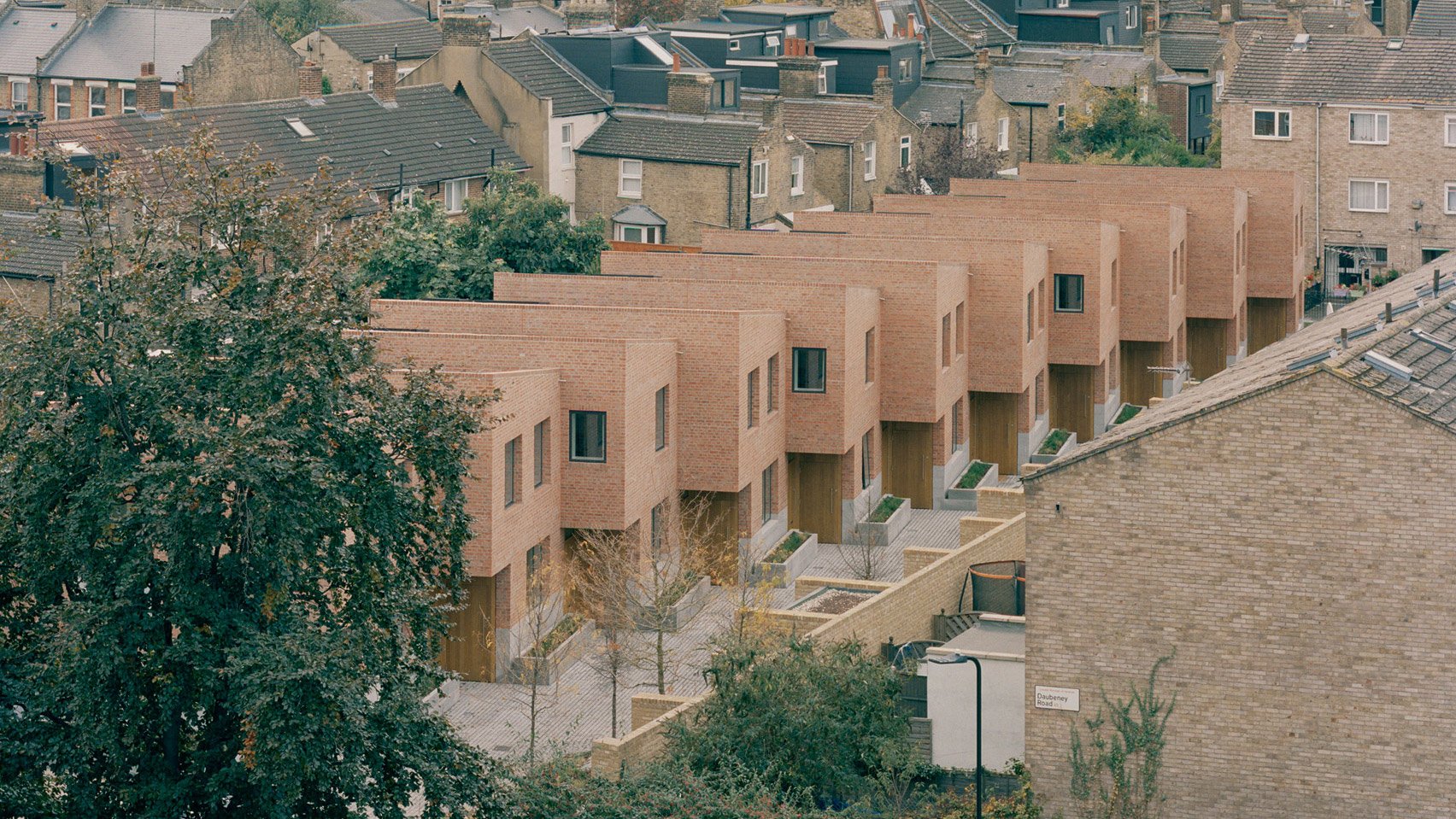The Royal Institute of British Architects has unveiled its shortlist for this year’s Stirling Prize, made up of six British buildings that are “purposeful yet unassuming”.
All shortlisted projects are in England, with just two of the six located outside of London.
These are Phase 2 of the Park Hill estate regeneration in Sheffield by Mikhail Riches and the Wraxall Yard holiday accommodation in Dorset by Clementine Blakemore Architects.
In London, the four projects vying for the prestigious prize include the Chowdry Walk social housing by Al-Jawad Pike and The Elizabeth Line infrastructure by Grimshaw, Maynard, Equation and Atkins.
Jamie Fobert Architects’ overhaul of the National Portrait Gallery with Purcell is also shortlisted, alongside the King’s Cross Masterplan by Allies and Morrison and Porphyrios Associates.
RIBA president Muyiwa Oki praised the six shortlisted projects “for placing regeneration and restoration front and centre”.
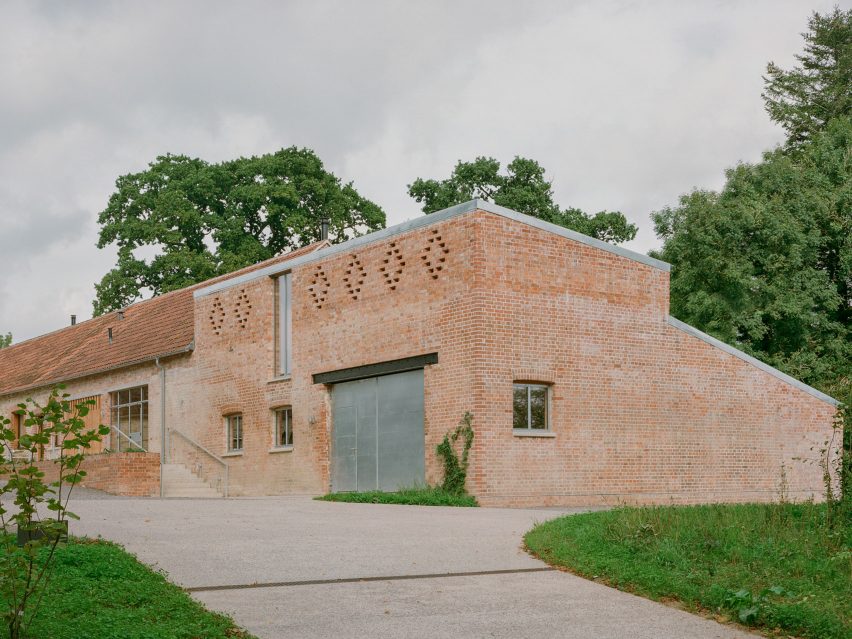
These projects demonstrate the ingenuity and diversity of architecture today,” said Oki.
“From major national infrastructure to brave and brilliant council-led housing, these varied schemes are united in making sensitive contributions to elevating everyday life,” he continued.
“Whether raising the bar for social housing, upgrading city transportation or repurposing dilapidated buildings to create heritage-conscious urban and rural developments, each scheme thoughtfully adapts elements of our existing built environment,” added Oki.
“This is purposeful yet unassuming architecture – architecture that brings joy to people’s lives and strengthens the fabric of our society.”
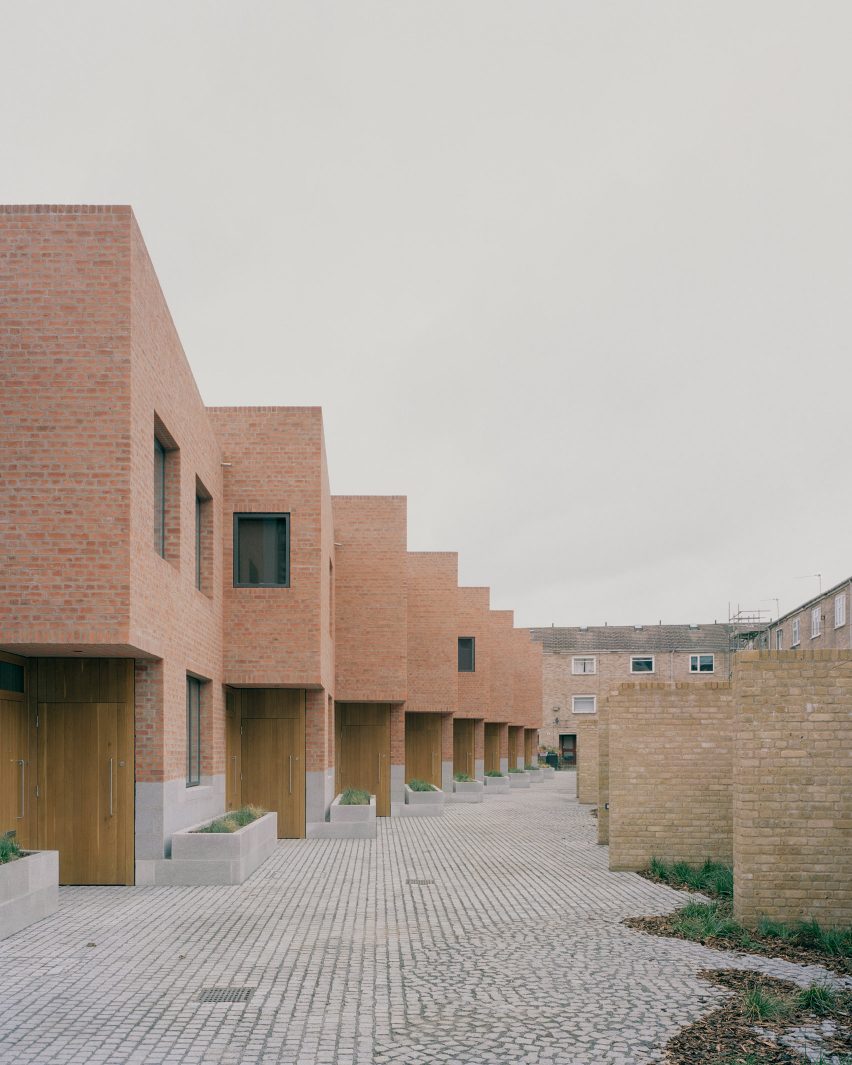
Chowdry Walk in Hackney by Al-Jawad Pike comprises 11 homes of which seven are available for social rent.
Described by RIBA as “an exemplary blueprint for social housing”, the staggered two-storey block runs parallel to a throughway for pedestrians and cyclists.
Another housing project on the list is the latest phase of regeneration at the brutalist Park Hill estate in Sheffield, which has been led by Mikhail Riches – the studio behind the RIBA Stirling Prize 2019 winner Goldsmith Street.
The studio’s aim for to preserve as much of the original building fabric as possible for Phase 2, while improving its energy performance and modernising the apartments inside.
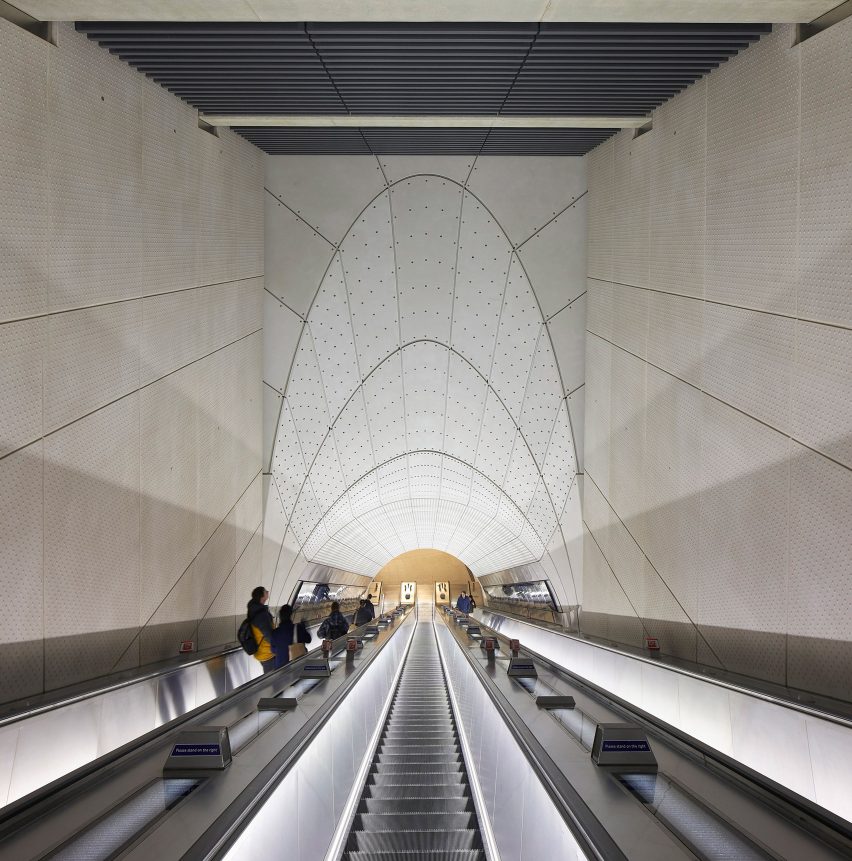
Mikhail Riches is the only shortlisted studio this year to have previously won the prize, which is deemed the UK’s highest accolade for architecture.
Allies & Morrison was shortlisted in 2008 and 2012 for Royal Festival Hall and New Court Rothschild Bank respectively, while Jamie Fobert Architects was shortlisted in 2018 for New Tate St Ives and Grimshaw for London Bridge Station in 2019.
Other projects on the 2024 shortlist involving existing buildings are the renovation of the National Portrait Gallery in London by Jamie Fobert Architects and Purcell, and Wraxall Yard in Dorset.
Wraxall Yard is a holiday retreat slotted within the shell of an old dairy farm, designed by Clementine Blakemore Architects with a focus on being highly accessible to wheelchair users.
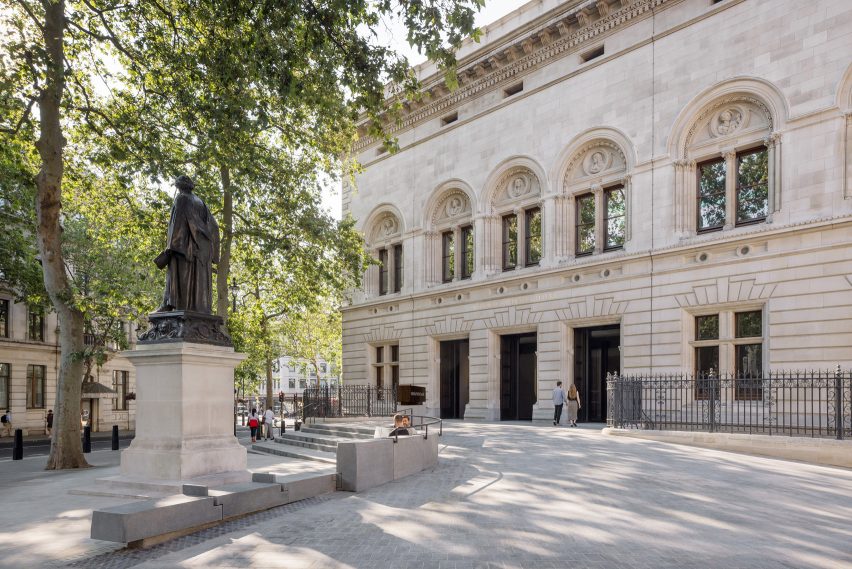
The largest project on the list is the biggest expansion to London’s underground railway network for more than a century – The Elizabeth Line.
Hailed by RIBA as “a mammoth feat of construction and collaboration”, the project was overseen by Grimshaw, Maynard, Equation and Atkins to carry 200 million passengers each year.
The sixth and final shortlisted project is the 20-year-long redevelopment of King’s Cross by Allies and Morrison together with Porphyrios Associates, which has involved the transformation of industrial wasteland into a range of public spaces, offices and educational facilities.
The RIBA Stirling Prize was first awarded in 1996 and is bestowed annually to the architect behind the building considered as the most significant of the year.
As with previous years, the 2024 Stirling Prize shortlist was selected from the winners of the RIBA National Awards, revealed earlier this month. The winner will be announced on 16 October 2024.
The winning project will be selected by a jury consisting of architects Alex Ely of Mae and Benedetta Tagliabue of EMBT, alongside Autodesk consulting director David Light, Cambridge university professor Minna Sunikka-Blank and Chanel’s head of arts and culture Yana Peel.
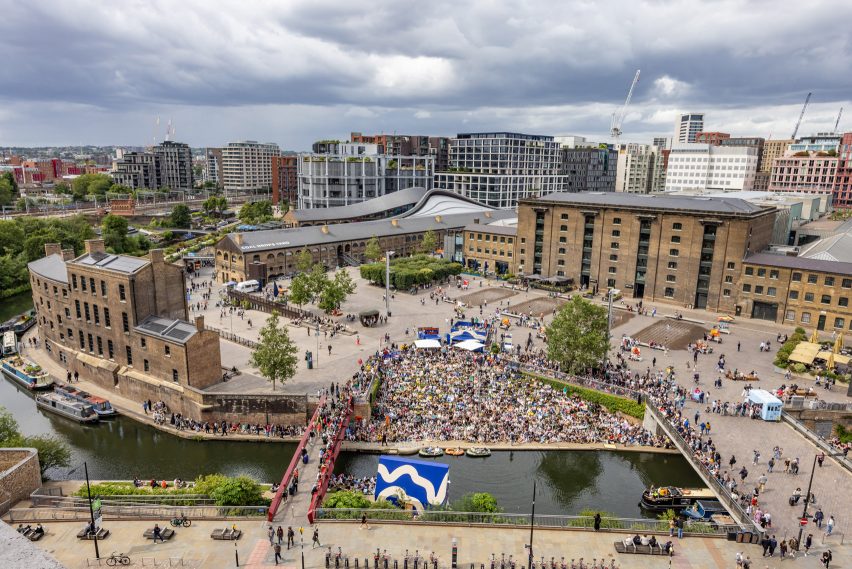
Last year’s winner was The John Morden Centre by Mae – a daycare centre for the residents of the Morden College retirement community in London.
Previous winners include The New Library at Magdalene College by Níall McLaughlin Architects, Newport Street Gallery by Caruso St John and Liverpool Everyman Theatre by Haworth Tompkins.

